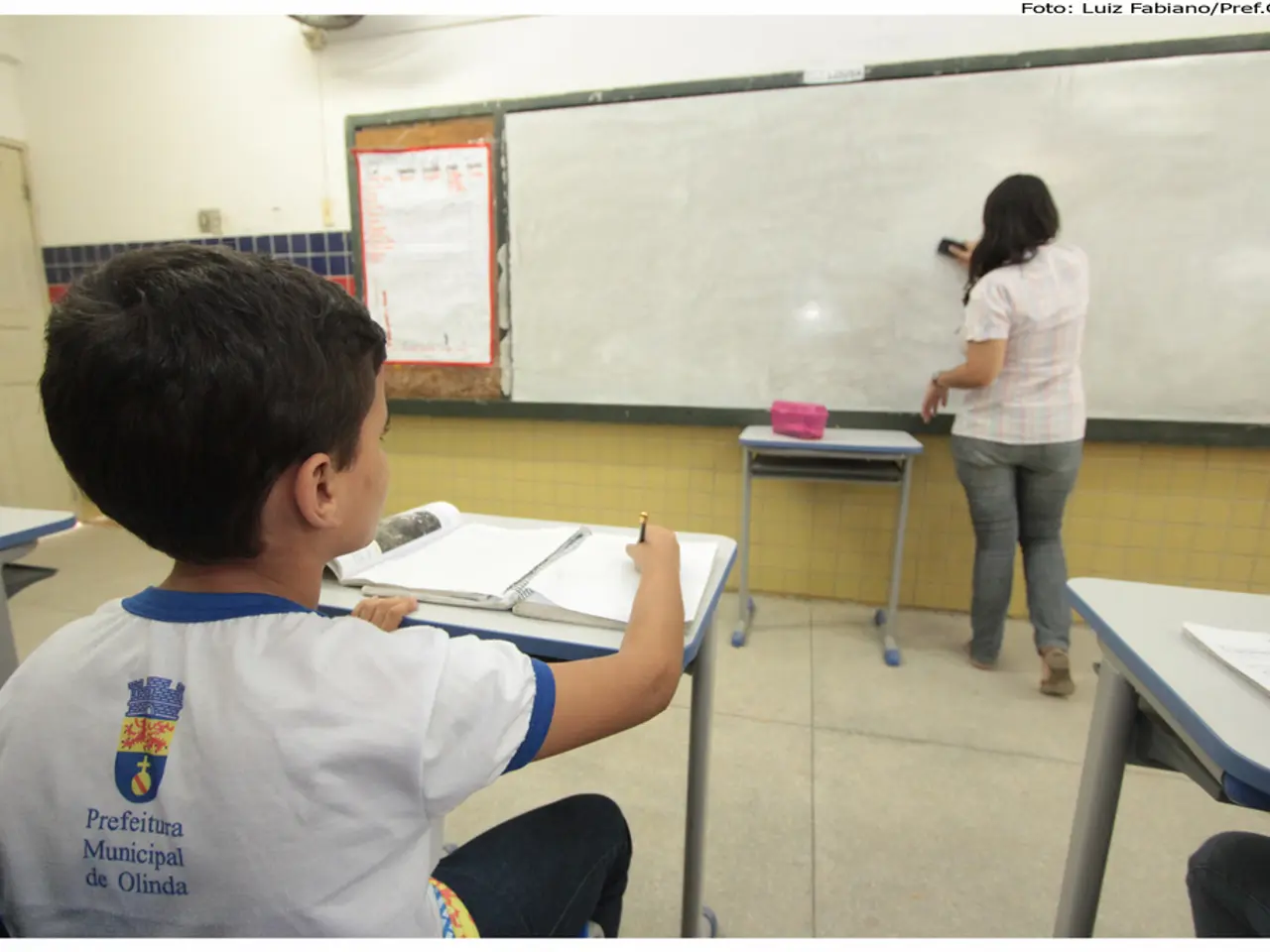Automated AI grading becoming more proficient. Is it appropriate for educators to employ AI for marking assignments?
In the realm of education, the integration of Artificial Intelligence (AI) tools is increasingly becoming a topic of interest. AI is being hailed as a potential game-changer, particularly in the area of grading student work. However, concerns about trust, fairness, and accuracy persist among educators and students.
Best practices for AI-assisted grading emphasize a harmonious blend of AI efficiency and human oversight. Prominent tools like Gradescope use AI to group similar answers, suggest grades, and identify plagiarism or grading inconsistencies. Instructors review and adjust these suggestions, enhancing grading speed and consistency while upholding academic integrity.
Key best practices include using AI to assist, not replace, instructor grading, ensuring AI feedback aligns with rubrics and course goals, regularly auditing AI models for bias and fairness, maintaining transparency with students, and leveraging AI's ability to personalize assessments.
However, acceptance by students and teachers remains a challenge. Concerns revolve around trust, transparency, and accuracy issues. Teachers worry about AI introducing bias, reducing instructor autonomy, or oversimplifying complex grading tasks. Students fear unfair treatment due to opaque AI decision-making, data privacy breaches, or misclassification of their work. Both groups express unease about AI's ability to understand nuanced or creative student responses fully.
To overcome these barriers, institutions must implement AI grading with clear communication, instructor training, opportunities for human review, and continuous evaluation of AI fairness and effectiveness. Integrating AI as a supportive tool rather than a replacement helps foster acceptance and maximizes its impact on teaching efficiency and student learning outcomes.
Two studies on AI assessments and writing found that while AI wasn't as good as skilled teachers, it was close and potentially better than overworked or inexperienced teachers at providing feedback. Deirdre Quarnstrom, Vice President of Education at Microsoft, echoes this sentiment, expressing a high level of interest in using AI to improve education tasks, including grading and assessment.
Building trust in AI-generated feedback is crucial to its acceptance by students and teachers. Steve Graham, a co-author on both studies and professor at Arizona State University, suggests that increased research and studies to evaluate its efficacy and develop best practices can help build this trust.
Michael Klymkowsky, a biology professor at the University of Colorado Boulder, is developing an AI tool to help assess biology students' progress. This tool is designed to inform teachers on where students are at with the material, and it might already be able to do a better job at grading than humans in some instances.
AI is already skilled enough to perform initial evaluations based on a set of instructions or prompts or criteria in the grading and assessment process. State writing assessments are increasingly scored by computer programs, providing precedent for the acceptance of machine-generated assessments.
Steve Graham believes that AI grading and assessments can eventually help students learn and ease time constraints for teachers, but emphasizes the importance of maintaining the human element. Kwame Anthony Appiah, a philosophy professor at NYU, agrees, stating that using AI to grade student work while prohibiting students from using AI to submit their own work is ethical.
In summary, best practices highlight AI-enabled efficiency with human-in-the-loop oversight, fairness audits, transparency, and alignment with pedagogical goals, while addressing trust, bias, and privacy concerns to promote acceptance among educators and students. As we continue to explore the potential of AI in education, it's essential to strike a balance between technological advancements and the preservation of human interaction and pedagogical integrity.
- AI tools, such as Gradescope, are being used in education to assist teachers in grading student work more efficiently, with AI suggesting grades, identifying plagiarism, and grouping similar answers.
- Instructors review and adjust AI suggestions, enhancing grading speed and consistency while upholding academic integrity.
- To build trust in AI-generated feedback, increased research and studies on its efficacy and best practices can help, as suggested by Steve Graham, a co-author on two AI assessment studies.
- Klymkowsky, a biology professor at the University of Colorado Boulder, is developing an AI tool to help assess biology students' progress, potentially outperforming humans in some instances.
- The integration of AI in education should strive for a balance between technological advancements and the preservation of human interaction and pedagogical integrity, as stated by Kwame Anthony Appiah, a philosophy professor at NYU.




